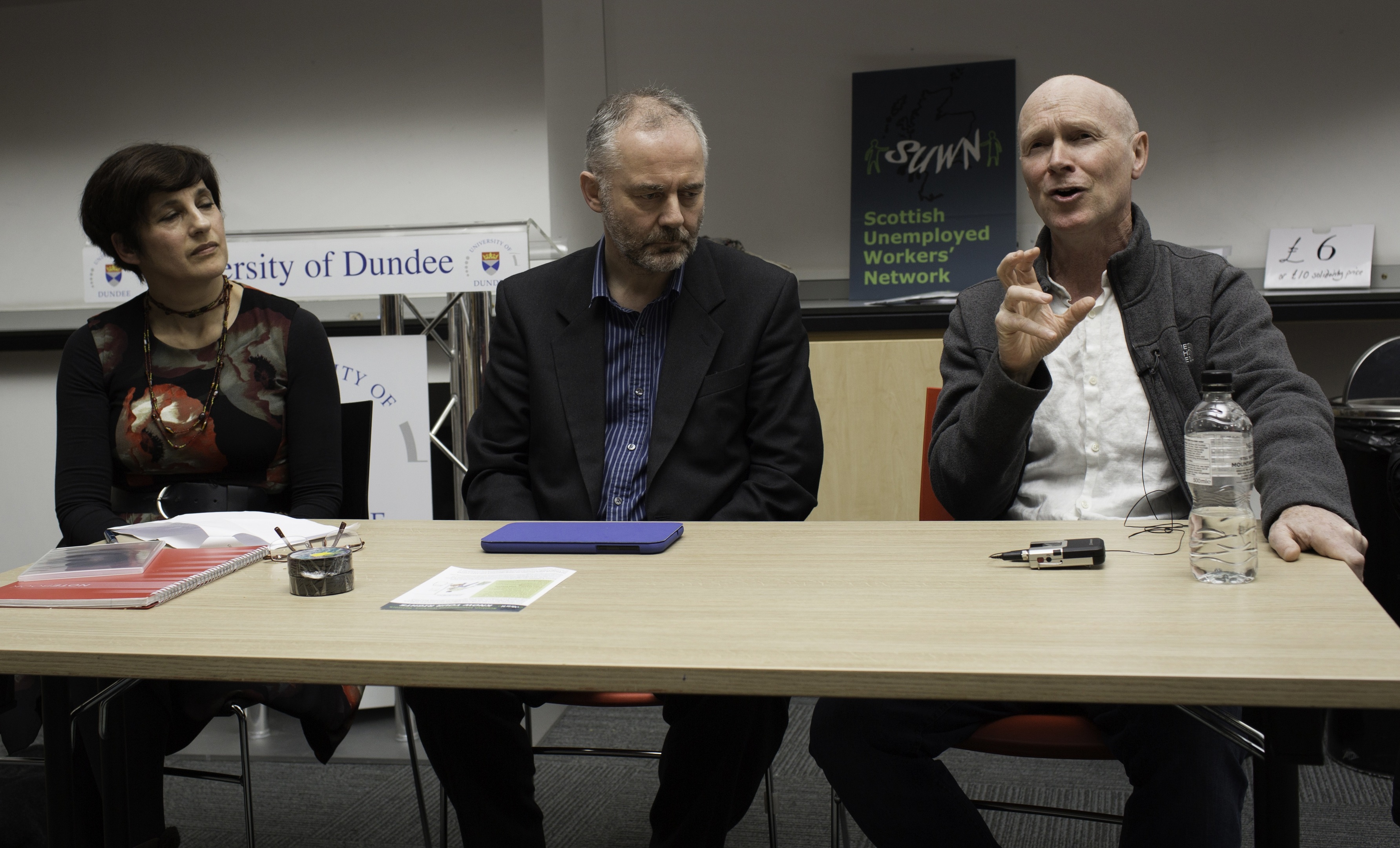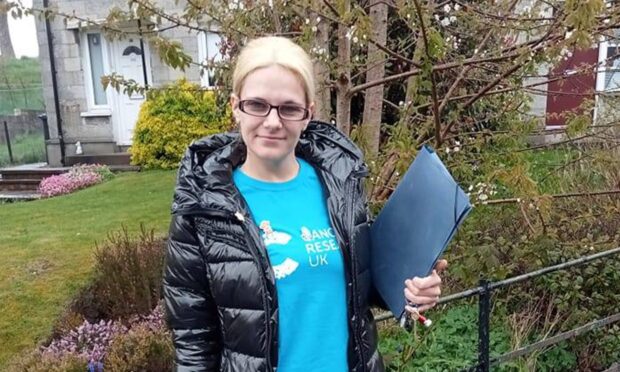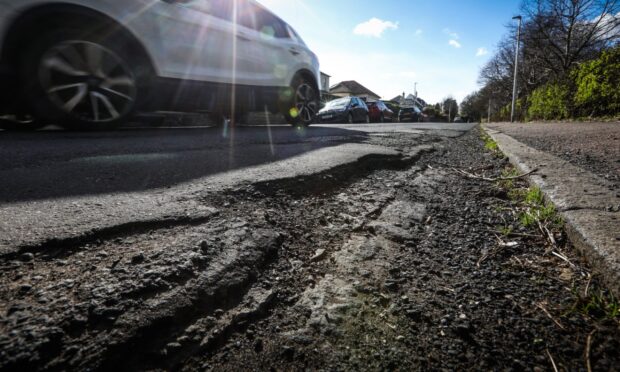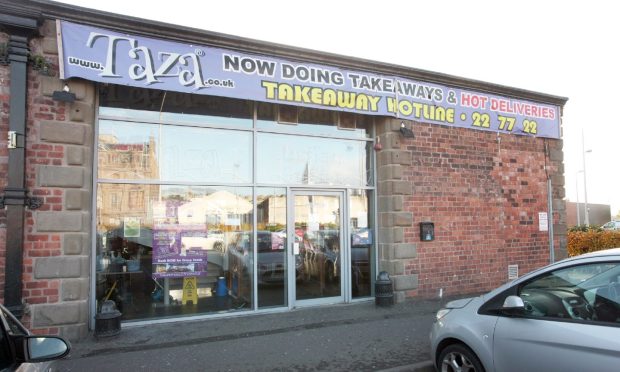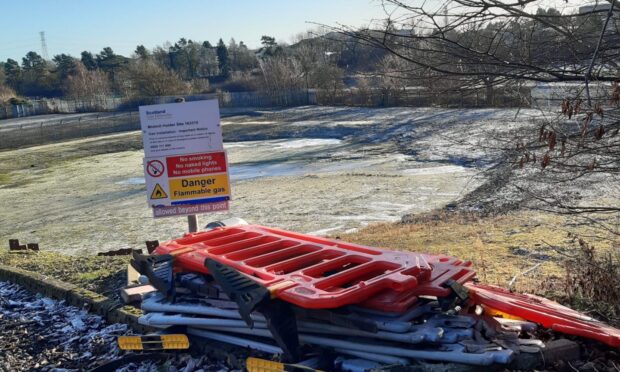The screenwriter of award winning film I, Daniel Blake this week returned to Dundee, where he had met “highly distressed” jobseekers as part of his research, to take part in a talk about welfare reform.
Over 200 people turned up for a screening of the film and a question and answer session with Paul Laverty at Dundee University.
The evening was hosted by the Scottish Unemployed Workers’ Network (SUWN) and Councillor Jimmy Black, who led the Q&A session.
Sarah Glynn from the SUWN said: “Paul carried out some of the research for the film at our stall outside Dundee jobcentre and has remained a good friend to our organisation, so we are especially delighted that he accepted our invitation.
“The audience questions included harrowing accounts of personal experiences of a welfare system that Paul Laverty insisted was not just misfunctioning, but was being made deliberately oppressive.
“This is a film that makes you cry, and then makes you angry. We hope to inspire people to get involved in activism.”
I, Daniel Blake, was directed by Ken Loach and tells the story of a 59-year-old joiner who suffers a heart attack, forcing him to navigate the complex welfare system.
The film has won numerous awards including the Palme d’Or at the Cannes Film Festival.
Paul Laverty also wrote a foreword to a book written by SUWN about the welfare system.
Referring to the city’s Job Centre, he wrote: “When we were researching the material for I Daniel Blake we came across overwhelming evidence of vulnerable people subjected to great pressure both by the Department of Work and Pensions (DWP) and indeed the subcontracted companies carrying out the work capability assessments.
“On a trip to Dundee I personally witnessed Tony Cox and his colleagues at the Scottish Unemployed Workers Network giving solid practical advice to confused and sometimes highly distressed claimants.”
A DWP spokeswoman said that the department is continuing to spend £90bn on working age benefits to ensure “a strong safety net” and provides hardship payments, benefit advances and budgeting loans.
She added: “Decisions on sanctions aren’t taken lightly but are an important part of our benefits system for those few who do not fulfil their commitment to find work — they are only ever used as a last resort and if a person disagrees with the decision, they can appeal.
“Sanctions have fallen sharply since the past year, with JSA and ESA sanctions both halving.”
